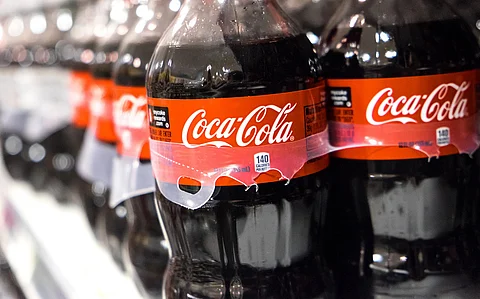

The Indian government's partnership with Coca-Cola for World Food India 2025, shortly after PM Modi's speech on obesity, has sparked criticism.
The collaboration contradicts the government's health guidelines on reducing sugar and ultra-processed foods, raising concerns about corporate influence on public health policy.
Just four days ago, on the occasion of India’s 79th Independence Day, Prime Minister Narendra Modi flagged obesity as a pressing health concern for the country. This was not the first time the prime minister was highlighting the challenge. Now, the Union Ministry of Food Processing Industries (MOFPI) has tied up with soft drink major Coca-Cola as a ‘silver’ partner for the forthcoming World Food India 2025 event.
The move is in conflict with the Union government’s own health guidelines of reducing the intake of sugar and ultra-processed foods.
World Food India, a flagship food policy and investment event to be held from September 25-28 in New Delhi, also counts Mondelez, the maker of many candies, cookies, chips, chocolates, and snacks, among its another official partner.
The decision has sparked serious concerns and criticism from doctors, health experts and civil society groups, who have pointed out the glaring contradiction between the government’s public health messaging and its corporate partnerships.
“We are delighted to welcome Coca-Cola as a Silver Partner for World Food India 2025! With a legacy of refreshing the world and a strong presence in India’s food and beverage landscape, Coca-Cola brings its global expertise to this premier platform,” a social media post by World Food India said.
The collaboration with corporates like Coca-Cola and Mondelez comes at a time when the Union government has been urging citizens to reduce their intake of sugar, oil, and ultra-processed foods (UPFs) and planning stricter regulations. In fact, the Economic Survey 2025 had recommended imposing a ‘health tax’ on UPFs to discourage their consumption.
In May 2025, the Central Board of Secondary Education (CBSE) directed all affiliated schools to install ‘sugar boards’ on campuses — an initiative to make children aware of the health risks linked to excessive sugar consumption.
This is especially troubling because the Government of India has no conflict-of-interest prevention or management policy in any department dealing with health or nutrition—confirmed by Right To Information responses in 2013, 2018, and 2025, experts from NAPi pointed out.
NAPi is a national think-tank on nutrition, consisting of independent experts in epidemiology, human nutrition, community nutrition and paediatrics, medical education, administration and management.
In the absence of a robust conflict of interest policy, experts warned that such partnerships could expose public health policy to corporate influence as industry actors can gain privileged access to decision-makers, shaping agendas in ways that undermine evidence-based health regulations.
NAPi also highlighted how this could legitimise harmful products and give them public credibility, enabling them to market aggressively, especially to children.